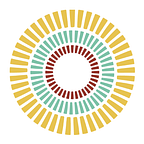How a Women-led Social Network Is Working to End Gender-Based Violence
On the women-led, global social network World Pulse, women from across the world are speaking out on gender-based violence, from domestic violence to sexual and emotional abuse and more.
What is gender-based violence?
Gender-based violence is an umbrella term that refers to harmful acts directed at a person based on their gender. Types of gender-based violence can include sexual, physical, psychological, and economic harm inflicted in public or private. Other gender-based violence examples include threats of violence, coercion, and manipulation (1).
Who is affected by gender-based violence?
With nearly 35% of women globally experiencing abuse in their lifetimes, violence against women is the most pervasive human rights violation on the planet (2).
The impact of gender-based violence knows no economic or social boundaries, creating a ripple effect throughout society. This can lead women to suffer in isolation, unable to work and earn a wage, participate in their communities, and care for themselves and their children (3). In turn, growing up around violence can negatively impact children’s emotional and behavioral health, and perpetuate cycles of violence (4).
In this article, you’ll learn how the World Pulse community is bravely sharing their personal experiences and ideas for action to combat gender-based violence.
Here are three community-sourced solutions for how to prevent gender-based violence:
World Pulse leaders are speaking out on all forms of gender-based violence, ranging from intimate partner violence to human sex trafficking and sexual assault on campuses. Here are some of the courageous World Pulse women who are sharing their experiences and proven solutions. Together, our voices are a rallying cry for global action.
1) Busayo Obisakin convinced a Nigerian king to decry domestic violence.
In Nigeria, 48 percent of women experienced at least one form of violence since the COVID-19 pandemic began, according to a UN Women report (5). How can we prevent domestic violence? Busayo Obisakin and her organization, Women Inspiration Development Center (WIDC), convinced traditional rulers to sign an oath to eradicate violence against women and girls.
“I made them realize how their communities could develop when women and girls are respected and allowed to discover and maximize their potential instead of being molested, abused, and battered,” Busayo says. Through her initiative, Busayo continues to collaborate with communities to eradicate violence against women and girls.
2) Pallabi Ghosh helped rescue more than 5,000 trafficked children and adults in India. Today she trains rural communities on how to prevent trafficking.
A researcher turned human rights activist, Pallabi works to curb human trafficking and gender-based violence. Her organization, Impact and Dialogue Foundation, conducts grassroots outreach and trainings in the rural state of Assam to prevent trafficking, reaching more than 35,000 people. “I want to spread awareness and empower people on the ground so that they can stand for their rights and uplift other people in their communities,” Pallabi says.
3) Elena Georgiou of Cyprus escaped abuse. Now she’s helping survivors access justice in court and make universities safer.
After surviving decades of domestic abuse, author, advocate, and researcher Elena Georgiou channeled her grief into helping others find a path to healing. “There is life after abuse, and I am living proof,” Elena says. “I said yes to me, and I want other women to be able to do the same.” Today Elena is creating a non-governmental organization to fight for survivors’ rights and working to designate gender-based violence offices at universities.
How can you prevent gender-based violence?
Women worldwide are rising up on World Pulse to combat violence against women. Join them and share your story.
From the U.S. and Canada to Trinidad and Tobago, women are sharing their stories and initiatives about gender-based violence. They are talking about topics such as femicide, female genital mutilation, domestic violence, and survivor services. World Pulse is your safe place to speak, find support, and usher in the change we need to see. If you are working to end violence against women, we want to hear about your efforts, successes, and challenges. Share words of advice and support for survivors of gender-based violence, or imagine what the world would look like if all women and girls were safe from harm — then share your vision here.
If you have experienced violence, speak out and share your story. Opening up can be the first step toward healing. Whatever you want to share on the topic of gender-based violence, your story matters, and we are here to support you with encouragement, resources, and connections.
Citations
- The UN Refugee Agency | USA. Gender-Based Violence.
- Pan American Health Organization. Violence Against Women. 2021.
- The World Bank. Gender-Based Violence (Violence Against Women and Girls). 2019.
- World Health Organization. Violence Against Women. March 9, 2021.
- UN Women. Measuring the shadow pandemic: Violence against women during COVID-19. November 21, 2021.
This story was originally published at https://www.worldpulse.org.
